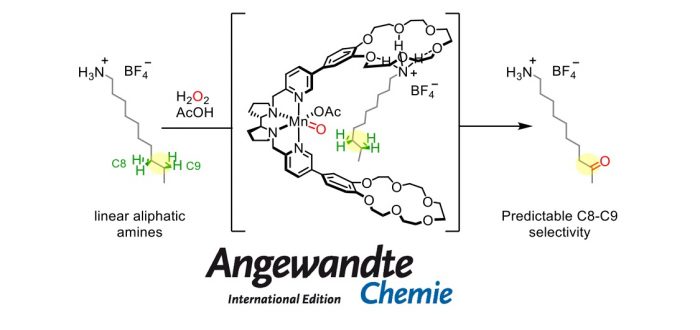The Institute of Computational Chemistry and Catalysis (IQCC) of the University of Girona (UdG) is a worldwide reference unit in computational chemistry and catalysis that aims at carrying out groundbreaking research on predictive chemistry for catalysis, with special focus on the processes occurring at the confined space for the coming years. One of the pillars
- sec.iqcc@udg.edu
- +34 972 41 83 57
Category: Portada
Xavi Ribas has been awarded one of the four PREMIOS A LA EXCELENCIA INVESTIGADORA awards given by the Spanish Royal Society of Chemistry (Real Sociedad Española de Química- RSEQ). These are individual awards designed to recognize scientific excellence scientists that have shown scientific leadership in their area. Congratulations Xavi!
In the coming week (April 4-6) there will be the main event of the year: #GirSem18. This three-day conference is the latest in a series of biannual scientific meetings that have taken place since 1993. From 2016 onwards the conference series have one general topic (Predictive Catalysis) that is in line with the research aims of
Next Tuesday, April 3, will take place the Young Researchers Symposiumat the Centre Cultural La Mercèin connection with the Girona Seminar (April 4-6). This symposium will be organized for, and by, PhD students in order to showcase their results, and we encourage all participants of the Girona Seminar to also attend this symposium. The organizers
Site-selective C-H functionalization of aliphatic alkyl chains is a longstanding challenge in oxidation catalysis, given the comparable relative reactivity of the different methylenes. A supramolecular, bioinspired approach is described to address this challenge. A Mn complex able to catalyze C(sp3)-H hydroxylation with H2O2 is equipped with 18-benzocrown-6 ether receptors that bind ammonium substrates via hydrogen bonding.
Today Teresa Corona and Anna Company reported in Anales de Química on metal-imido species, including the Cover picture by them. The corresponding paper (in Spanish) can be found here: Teresa Corona Prieto, Anna Company Casadevall “Especies metal-imido de alta valencia con metales tardíos de la primera serie de transición” An. Quím. 2017, 162-169
The Marie Curie IF project named EnzVolNet (H2020-MSCA-IF-2016-753045) has been selected for funding (158,121.60€/2 years). The project aims to engineer enzymes for stand-alone function for the synthesis of pharmaceutically relevant targets. This corresponds to the first Marie Curie project of Dr. Osuna research team (CompBioLab). Congatulations Javi and Sílvia!
Following today’s Nobel ceremony from Stockholm, it is our honor to announce the first two speakers of the Girona Seminar 2018, which will take place in Girona from April 4-6, 2018. Prof. Larry Que (Minnesota) has been a regular collaborator, mentor and supervisor of several members of the IQCC. He has published ca. 500 papers
At the beginning of August, the Nature Publishing Group sent out a mail titled “Is your institution a Rising Star?” to all people with an user account at NPG. Interestingly enough, at place 84 of the Nature Index 2016 Rising Stars we find the University of Girona (UdG), as only representative of Spain. The Nature
Achieving high selectivity among different nucleophiles has been a hard nut to crack in Cu-catalyzed Ullmann C–O and C–N couplings. The cover art of the Journal of Organic Chemistry illustrates that a precise selection of the auxiliary ligand is the key to achieving orthogonal selectivities in the arylation of mixed nucleophiles. In a similar manner,










